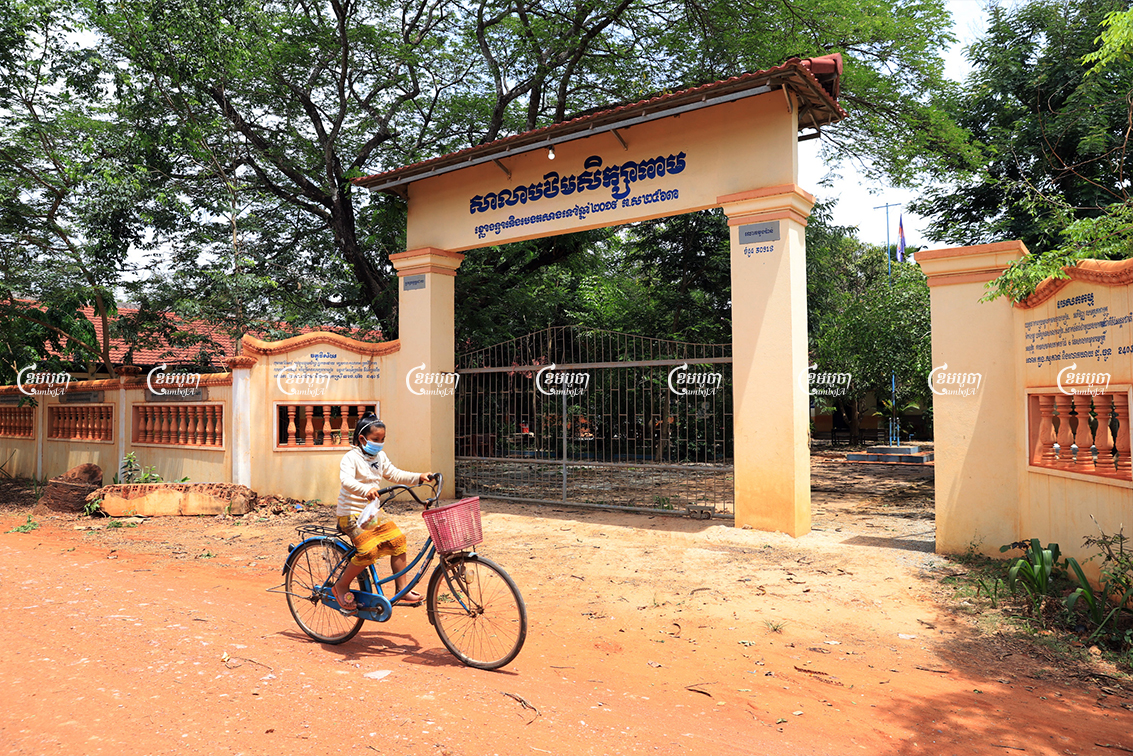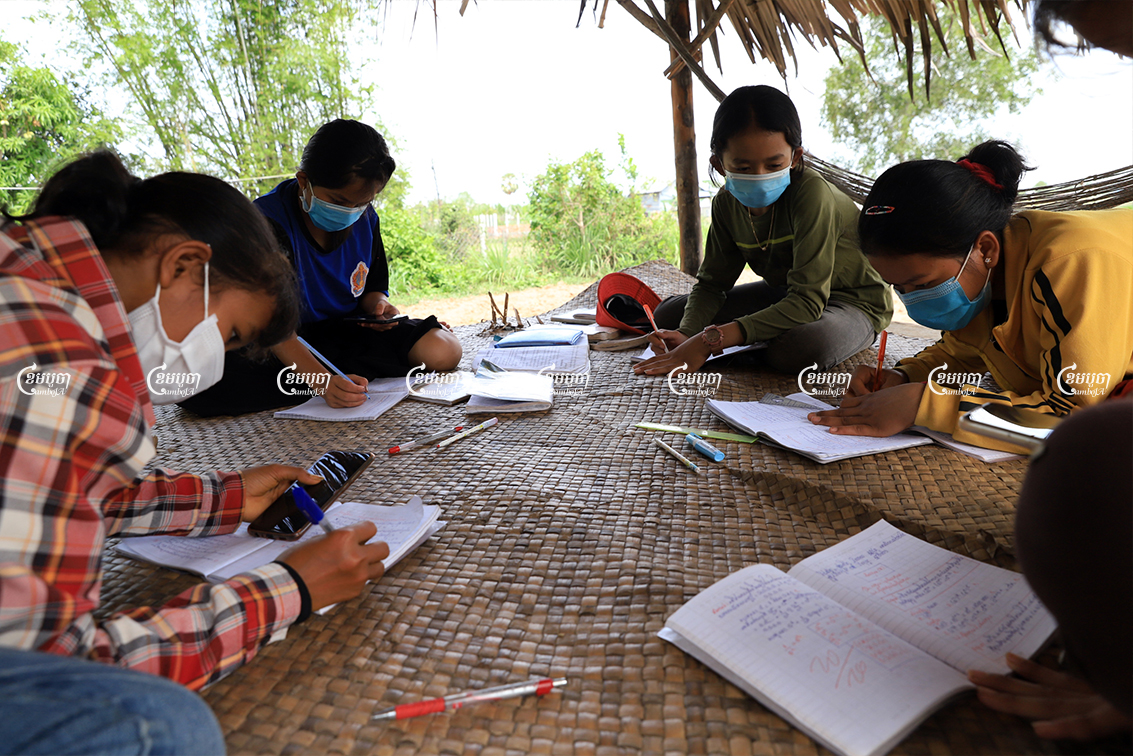Even as lockdown restrictions have been lifted elsewhere in Phnom Penh, public and private schools nationwide remain temporarily suspended due the ongoing COVID-19 outbreak.
Education Minister Hang Choun Narong, confirmed Friday all schools are still suspended as a measure to prevent infections among students. He briefly told CamboJA that no new decision has been made regarding the schools, which were ordered shut March 20.
Education Ministry spokesman Dy Khamboly also referred to the previous policy of closing the schools as an anti-transmision measure.
“Generally, it has not just impacted Cambodia but everywhere,” he said of school disruptions during the pandemic.
National authorities lifted on Thursday most of the lockdown measures for capital Phnom Penh and neighbouring Takhmao after three weeks of heavier restrictions. Some areas that had been designated as “red zones” due to high rates of COVID-19 transmission remain locked down.
However, beyond that, the government has initiated a broader opening, with Prime Minister Hun Sen on Thursday directing provincial governments to drop their separate entry restrictions. That national-level approach is also being seen in the school closures, which affect schools even in rural districts far from the outbreak epicenter.
As of Friday, Cambodia has recorded a total of 18,179 positive cases and 114 death since the start of the COVID-19 pandemic in early 2020.
Students this past year have relied on online learning programs organized by the Education Ministry which, also on Friday, launched a new digital schooling app called E-learning for use by students of all grade levels.
“Students can learn online, on-air and, for those who have a smartphone, they can learn on the app, so we have many types of digital platforms,” Khamboly said.
Even still, not all students can reliably access these non-traditional means of education.
A 14-year-old student in grade 8 from Siem Reap city’s Krabei Riel commune told CamboJA she accesses the Internet through a smartphone. Because of that, she has difficulty studying online due to poor connectivity.
As the school system attempts to adapt classrooms to a virtual platform, Minhtra doesn’t feel she’s learning as much at home compared to when she was physically at school.
“Online learning is difficult because we don’t understand [lessons] and no teacher gives explanations,” she said, adding that classroom instruction has mostly just become homework. “The Internet is very slow, even when we pay some money for a top-up phone card.”
Parents are also concerned that online learning isn’t a substitute for the classroom.
Norn Nga, 49, said the switch to digital education has affected the quality of schooling for both of her school-age daughters, who are in grades 8 and 12. Nga also pointed to the expense of putting a child through school on smartphone data, an additional cost she said was not paying off.
“They are not as concentrated as they are when studying at school,” she said.

Uk Chhayavy, president of the Cambodian Independent Teacher Association, agreed with the decision to suspend schools as a safety measure, but said online learning hasn’t been able to replace in-person classes.
“It is really affecting the quality of studying,” Chhayavy said. “However we do understand the situation of COVID-19.”
In January, millions of students began a new academic year after regularly being interrupted the year before by the Covid-19 pandemic. At that time, about 35 schools along the Thailand border remained closed for learning as they were being used as quarantine facilities for returning migrant workers. Students at these schools were transferred to nearby facilities.
At that time, the Education Ministry rolled out updated safety protocols for about 18,000 private and public schools across the country. But on March 20, the ministry went further and announced the temporary suspension of all schools in the country due to the growing outbreak of COVID-19 related to the February 20 community transfer event in Phnom Penh.
That closure has reached every corner of the country, including in Oddar Meanchey, where provincial Education Department director Pich Ratana oversees 50,000 students. Ratana said he has not received any directives for reopening the schools.
“We are still remaining in online studying and in some places we have handled paper [home] work for students,” he said. “It impacts students when they don’t have class at school. Online is not as good as studying together.”
The COVID-19 situation has remained a concern in the border province due both to domestic travelers entering Oddar Meanchey but also migrant workers returning from Thailand.
In the meantime, Ratana said the Education Ministry has created digital platforms and video clips for use by students, but said not all students can access online education, especially those in remote and rural areas with no access to the internet.
“Schools are far away from districts, so they have difficulty accessing internet service,” he said.








